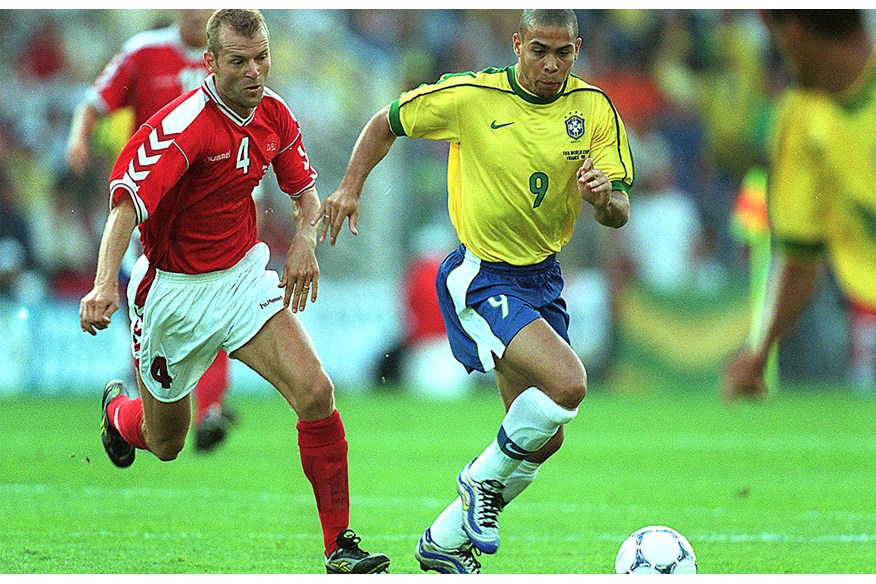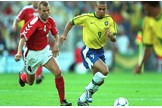Mulligan: Jes Hogh
Published:
The great Brazilian Ronaldo may have had the beating of number 4 Jes Høgh (below), but you can bet he did not relish for a moment facing this powerful and gritty Danish defender on the field. In fact, it is those qualities which helped Jes forge a successful career, and saw Chelsea sign him from Fenerbahçe in 1999. Like many, retirement from the pitch led to TV media punditry and it would have been the end game had not Jes suffered a devastating stroke one night in 2007 after commentating on a match. In the years’ since, Jes has been on a long road to recovery and found therapy and redemption through golf…
‘Train, eat, sleep and repeat.’ It’s a routine which has served Jes well ever since he was handed a trial at Aalborg as a fresh-faced, 20 year old. For the next 15 years, he amassed 57 caps for the Danish national team, not to mention a cabinet full of trophies, and even played in the 1998 World Cup.
When he retired in 2001, he found himself in demand and a new life in broadcasting beckoned. He had taken on the role of a football analyst when one January night in Copenhagen everything changed.
His new life was not that of a TV presenter but instead that of a stroke survivor. He had just returned to his hotel room after having had dinner with his colleagues. Jes got into bed and soon felt like he was losing the right side of his body.
“First it was my leg, then my arm and finally my head,” says Jes who “was just trying to survive”. “Everything was chaos, and all I could think was what happened, what happened, what happened.”
Four or five minutes passed and he was now unable to speak. Luckily, his mobile phone rang. Somehow he managed to pick it up and with no words he tried to ask for help. On the other end of the call was his exwife who realised something was seriously wrong before calling the paramedics. That call may well have saved his life. The fast response of the medical services certainly limited the damage that was taking place due to a massive blood clot that had formed on his brain.
Jes endured five months in the hospital, followed by hours of patient rebuilding work. Jes had to reconstruct both a damaged body and a damaged mind. Using his athlete’s mentality, Jes turned to his trusted mantra of, train, eat, sleep and repeat, “working like crazy” to wrestle back function in the right side of his body and relearning how to speak. Gym and speech therapy sessions occupied much of the following three years, as Jes slowly but surely progressed.
Jes had already caught the golf bug, even in his football days, and played regularly with other teammates. It helped that he was good at it. He had a handicap of four and even after his rehabilitation, he longed for the opportunity to play the sport that had given him friendship and competition.
Below: Former Denmark star Jes played against Ronaldo in the 1998 World Cup.

Jes now plays several times a week, and says, “in the summer months… there is something about going to the course around eight in the evening to play a few holes alone”. The tranquillity he finds to be alone with his thoughts, just swinging and walking, are priceless.
With a handicap of 34, but with the tactical awareness of someone who has played the game to a much lower handicap, Jes is a great partner to have in fourball matches. Just as in his best central defending days, he is a tough man to beat.
Train, eat, sleep and repeat – the mantra that has served Jes so well over the years, is helping to maintain the gains he made to recover both his body and mind. The second half of his match is just getting started.
Jes is just one of 18 golfers, who have shared their story for Mulligan, a book published by the European Disabled Golf Association. To find out more, visit www.edgagolf.com/book


